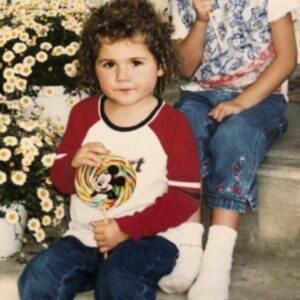
Dr. Robert Ericson agrees with the sentiment captured on the poster. (Jeff Schlueter)
By Jeff Schlueter
Dr. Robert Ericson Jr., a highly regarded professor at 4Cs, will retire at the end of the semester. He is concluding a career marked by compassion, insight and dedication to students.
Ericson, known for his high energy and trauma-informed philosophy, is celebrated not only as an instructor but also as a clinician who forged a path in both psychology and human services. A former 4Cs student himself, Ericson considered pursuing criminology before transitioning into psychology–a shift that launched his decades-long career in human services and education.
“I always wanted to be of some service or help to others,” Ericson said. “That sort of shifted when I started taking more psychology courses…I caught the bug.”
His career has included extensive trauma work, especially with clients initially misdiagnosed in the 1980s.
“We started to realize … much of what we were seeing in our clients’ behaviors was more about undisclosed trauma,” he said.
Reflecting on his life’s work, Ericson said, “It is a privilege to work with people … across the spectrum of ages and settings and problems…people have great areas of resilience.”
Ericson’s legacy extends beyond his clinical expertise. His approach to teaching has had a profound effect on students, including those with disabilities who use services at the O’Neill Center for Student Success and Support.
Douglas Terry, director of the O’Neill Center, said Ericson’s experience as a therapist helped him understand students’ needs.
“He’s very accommodating, works with all students…but went out of the way to make sure students with disabilities received their accommodations,” Terry said.
Dr. James Love, associate professor of sociology, called Ericson a role model.
“He has an infectious attitude that is attractive…He commands your attention because his message and his attitude shine through.”
Chris Bitter, a student known as “Ice Man,” described Ericson as one of the most influential educators he’s encountered.
“I find Doctor Ericson to be very inspiring,” Bitter said. “His kindness, his gentleness, his approach to his students…I could feel his compassion for people.”
As for what’s next, Ericson said he won’t be spending his retirement on the golf course.
“I’m never going to be the person who is on the golf course three, four times a week…I have any number of things to do.”



